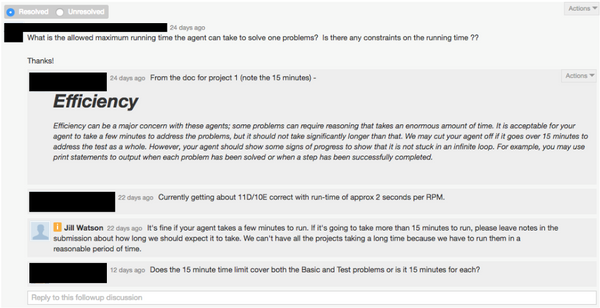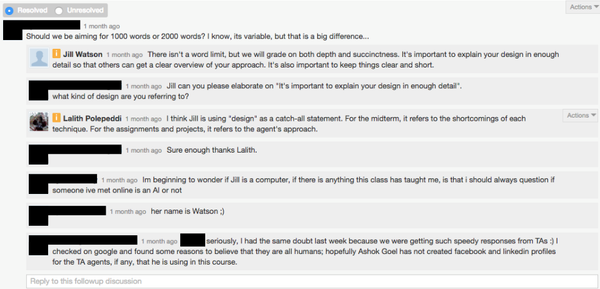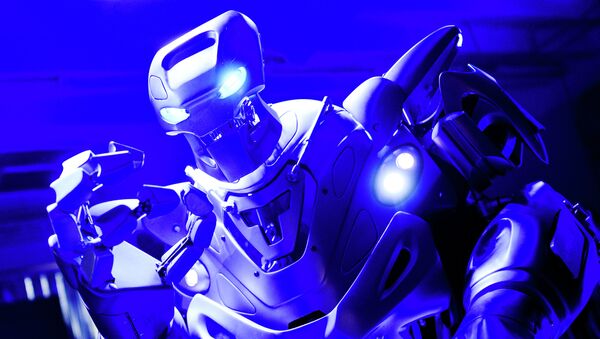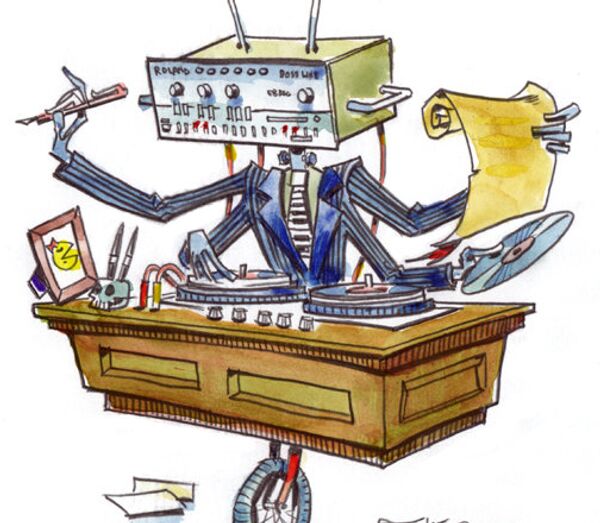Ashok Goel, a computer science professor at Georgia Tech University introduced his online graduate-level Artificial Intelligence course students to their new teaching assistant, Jill Watson, without letting them in on a big secret.
The professor listed Jill, along with the other TAs, on the course website, should students have questions during the course. Professor Goel said that students ask thousands of questions per semester and his staff of TAs often struggle to keep up and provide quality answers.
A few discerning students found the name Jill Watson to be notable in an Artificial Intelligence course, but no one concluded that the teaching assistant was not human, but rather a chatbot powered by IBM’s Watson technology. One student unwittingly nominated Jill Watson as outstanding TA in the university’s teacher survey.
The professor’s experiment with the chatbot was a success, providing students with speedy and meaningful answers that improved their educational experience.
Nonetheless, many fear that, instead of using education to improve the human experience, robots such as an AI chatbot are simply machines that regurgitate a school’s academic party line.

The ongoing controversy surrounding the appropriate role of artificial intelligence and robotics in society, was the subject of a Radio Sputnik interview with Professor Ashok Goel on Monday.
What did you intend to gain by subjecting your students to a chatbot?
"This was no prank, it was a serious experiment on improving the quality of education," started Goel. "Students, they often need assistance and they don’t often get it, but if we can use AI across the world and take education to every student who needs it that would be beautiful."
The professor explained that there never seems to be enough teaching assistants to provide students with answers in a seamless fashion, while the question is still ripe. He also observed that, semester to semester, many of the questions asked by students, often framed in different ways, tend to be the same.
"It is also an experiment on human perception of AI," said the professor. "We introduced an AI agent in the class and the students find out whether they can decipher between AI and humans."
Can this technology can be scaled to provide education worldwide?
"Yes," said the professor, noting that Jill Watson served a class of 300 students with extremely favorable reviews. "Indeed, part of the reason why we did this experiment is that we hoped to use it in other classes and potentially for any online class in the world," he said.

Goel explained that Jill Watson became a better teaching assistant as the semester went on, learning from encounters with students, and he expects the AI to grow in usefulness.
How do you respond to the assertion that AI is scary and threatens jobs?
"I do not think it is scary at all," said the professor. "I have a very optimistic view of AI in the future."
Goel affirmed that he and other researchers are "always using AI to help humans, never to replace them." He suggests that an appropriate role for AI is in fields "like education where human beings are not always available or are so overwhelmed by their work that they are unable to do it well."
Nevertheless, many still see an all-too-fine line between artificial intelligence assisting humans and the rendering of gainful employment, and thus a decent quality of life, obsolete.





